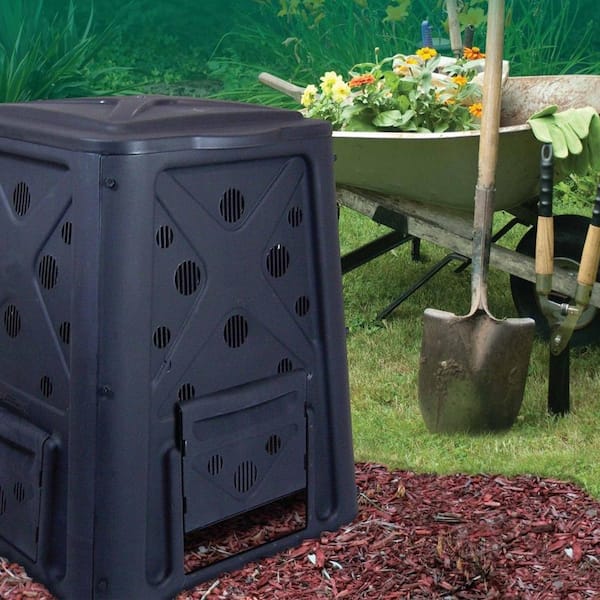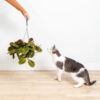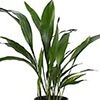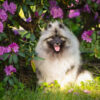Key Takeaways
Redmon Green Culture Compost Bins are an excellent tool for eco-friendly gardening, especially for pet owners.
Composting is a natural process that enriches the soil, but it’s essential to know what can and cannot be composted safely.
Proper setup and maintenance of compost bins are crucial to prevent pets from accessing potentially harmful substances.
Understanding the features of the Redmon Compost Bin can help in creating a safe and efficient composting system.
It’s important to recognize signs of pet intoxication and know how to react if your pet gets into the compost.
Why Redmon Green Culture Compost Bins Are a Must for Eco-Friendly Pet Owners
For those of us who love both our pets and our planet, there’s a growing trend that marries these passions perfectly: eco-friendly gardening with compost bins. Not only does this practice reduce waste, but it also creates nutrient-rich soil that gives back to the environment. Among the many options available, Redmon Green Culture Compost Bins stand out for their user-friendly design and pet safety features.
Boosting Garden Health with Compost
Imagine your garden thriving, its soil teeming with life, all because you chose to compost. Compost is decomposed organic material, and it’s like a superfood for your garden. It improves soil structure, provides nutrients, and helps retain moisture. All you need to start is a bit of space, some scraps from your kitchen, and a compost bin to keep everything contained.
Now, composting isn’t just tossing leftovers into a pile; it’s an art. A balance of greens, like vegetable scraps, and browns, like dried leaves, creates the perfect environment for microorganisms to break down the waste. This process eventually turns your everyday scraps into black gold for your garden.
Eco-Friendly Waste Reduction Methods
Every time we throw something in the trash, it’s a lost opportunity to enrich our gardens and reduce our carbon footprint. Composting is a simple yet powerful way to take charge of our waste. By composting, we can divert as much as 30% of household waste away from landfills. That’s a big win for the environment, and it’s something we can all feel good about. For those interested in starting their own eco-friendly waste reduction at home, consider exploring pet-friendly veggie container gardens as another sustainable option.
“Redmon 65 Gal. Capacity Compost Bin …” from www.homedepot.com and used with no modifications.
Understanding the Redmon Green Culture Compost Bin
The Redmon Green Culture Compost Bin is a popular choice for gardeners, and for good reason. Its 65-gallon capacity is perfect for households of all sizes. The bin’s design encourages airflow and speeds up the decomposition process, which means your compost will be ready to use sooner. Plus, it’s made from durable, weather-resistant materials that will last through the seasons.
Features That Favor a Green Thumb
Let’s dive into the features that make the Redmon Compost Bin a standout choice:
Easy assembly: You can put it together without tools, which means you’ll be ready to compost in no time.
Convenient access: The bin has four access doors, making it easy to add new material and remove finished compost.
Aeration: The bin is designed with ventilation holes to promote airflow, crucial for breaking down waste efficiently.
These thoughtful design elements not only make composting more manageable but also more effective. Your garden will reap the benefits of high-quality compost, and you’ll have the satisfaction of knowing you’re making a difference for the planet.
Design Elements That Keep Pets Safe
As a pet owner, safety is always a top priority. The Redmon Compost Bin’s sturdy construction and secure lid help ensure that your curious pets stay out of the compost. The tight-fitting lid also keeps out unwanted pests and helps control any odors, which is especially important when you’re entertaining outdoors or simply enjoying your backyard oasis.
Composting Do’s and Don’ts in Pet Gardens
As a responsible gardener and pet owner, it’s essential to understand the balance between what’s beneficial for your compost and what could be harmful to your furry friends. Composting is a fantastic way to recycle kitchen and garden waste into something that can nourish your plants, but it’s important to do it with caution. The key is to create a safe, pet-friendly environment while producing the best possible compost for your garden.
Safe Compost Ingredients That Benefit Your Garden
Here are some pet-safe ingredients you can add to your Redmon Compost Bin:
Fruit and vegetable scraps (avoid pits and seeds of fruits like peaches, plums, and cherries which can be toxic)
Eggshells (crushed)
Coffee grounds and paper filters
Grass clippings and yard waste (ensure they haven’t been treated with pesticides)
Leaves
Straw and hay
Cardboard rolls, clean paper, and newspaper strips
These materials will decompose into rich humus that will enrich your soil and promote plant growth. Remember, a healthy balance of ‘green’ nitrogen-rich and ‘brown’ carbon-rich materials is crucial for effective composting.
Harmful Substances to Keep Out of Your Compost Bin
While many organic materials are great for composting, some can pose a threat to your pets. Here’s what to avoid: harmful substances in compost that could encourage digging and potentially harm your pet.
Meat, fish, bones, and fatty food scraps (they can attract pests and create odor problems)
Dairy products
Onions, garlic, and other plants that can be toxic to pets
Diseased or insect-infested plants
Used cat litter or dog feces (these can contain pathogens harmful to humans and animals)
Yard trimmings treated with chemical pesticides
By keeping these items out of your compost, you’ll help ensure that your garden remains a safe place for your pets to enjoy.
Implementing a Pet-Friendly Composting System
When it comes to composting with pets around, a little foresight goes a long way. Choosing the right compost bin, like the Redmon Green Culture Compost Bin, is a great start. But there’s more to it than just picking out a bin. You need to think about where you’ll place it, how you’ll maintain it, and how you’ll use the compost once it’s ready.
Setting Up Your Redmon Compost Bin
First things first, let’s get your compost bin set up. If you’re looking to create a pet-friendly garden, consider using your compost to enrich a Texas pet-friendly veggie container garden.
Choose a spot in your yard that’s convenient for you but not easily accessible to your pets. Ideally, it should be on bare earth, not pavement, to allow for drainage and beneficial organisms to access the pile.
Make sure the bin is level so that it’s stable and won’t tip over.
Start with a layer of coarse, dry brown material, like straw or leaves, to encourage airflow at the bottom of the bin.
With these steps, you’ll have a strong foundation for your composting efforts. For more guidance on preventing your pets from accessing certain areas, consider reading about how to stop pets from digging in your garden.
Once your bin is set up, it’s time to add your kitchen and garden waste. Layer your greens and browns, and remember to chop or shred larger pieces to speed up the composting process.
Maintaining Your Compost to Be Pet Safe
Most importantly, always ensure the lid of your compost bin is securely fastened. A secure lid not only prevents your pets from getting into the compost but also deters pests like rodents or raccoons, which can be a nuisance and a health hazard.
Here are a few more tips to maintain a pet-safe compost:
Regularly turn your compost with a garden fork to aerate it, which speeds up the composting process and reduces odor.
Keep the compost moist, but not too wet. The consistency should be like a wrung-out sponge.
Monitor your compost for any signs of unwanted pests and take action if necessary.
By following these maintenance steps, you’ll create a thriving compost pile that’s safe for your pets and beneficial for your garden.
Utilizing Compost in Your Garden
After a few months, your compost will be dark, crumbly, and ready to use. Here’s how to make the most of it in your pet-friendly garden:
Spread the compost as a top dressing on your garden beds to nourish plants and improve soil health.
Use it as mulch to conserve moisture and suppress weeds.
Mix it into potting soil for container plants to give them a boost.
Remember, while compost is excellent for your garden, it’s best to keep it away from the reach of your pets. Even pet-safe compost can contain molds or other substances that might not be good for your furry friend if ingested in large quantities.
Example: One gardener I know found that her dog loved to dig in her freshly spread compost, mistaking it for a fun play area. To prevent this, she started using a light layer of straw on top of the compost as a visual and textural deterrent, which worked like a charm.
With these tips and a little vigilance, you can enjoy all the benefits of composting while keeping your pets safe and your garden flourishing.
Ensuring Pet Safety Around Compost Bins
Creating a safe space for composting when you have pets requires a bit of planning. Your pets are curious by nature, and the smells coming from your compost bin can be intriguing. Therefore, it’s crucial to ensure that your compost bin is not only efficient at breaking down waste but also secure against inquisitive noses and paws.
Secure Placement and Pet-Proofing Strategies
Choose a location for your Redmon Compost Bin that’s out of the main play areas for your pets. If you have a fenced-off section of your yard, consider placing the bin there. Additionally, weigh down the lid or use a locking mechanism to prevent your pets from opening the bin. If you have an open compost pile, consider enclosing it with chicken wire or a similar barrier to keep pets out.
Another strategy is to create a distraction for your pets. For instance, if you have a dog, you can set up a designated digging area away from the compost bin, filled with sand or loose soil, where they can dig to their heart’s content without getting into trouble.
Recognizing and Reacting to Signs of Pet Intoxication
If your pet does get into the compost, it’s essential to know the signs of potential intoxication. Symptoms can include vomiting, diarrhea, lethargy, or changes in behavior. If you notice any of these signs, contact your veterinarian immediately. Prevention is always the best approach, but quick action is critical if an incident occurs.
Keep the contact information for your local veterinary clinic and an emergency animal poison control hotline readily available. It’s better to have it and not need it than to be scrambling for information in an emergency.
Frequently Asked Questions (FAQ)
Can I compost my pet’s waste in a Redmon compost bin?
It’s not recommended to compost pet waste in a Redmon compost bin or any standard compost bin used for kitchen and garden waste. Pet waste can contain harmful pathogens that may not be killed during the composting process. There are specialized pet waste composters available that are designed to handle this type of material safely.
How can I prevent my pet or other animals from getting into the compost?
To prevent pets and other animals from getting into your compost, make sure the lid of your Redmon Compost Bin is always securely fastened. If necessary, add additional weights or locks. For open compost piles, use fencing or barriers, and consider placing it in an area that’s not easily accessible to your pets or local wildlife.
What are the benefits of composting pet-safe material?
Composting pet-safe materials is a fantastic way to reduce household waste and create a nutrient-rich amendment for your garden. It can improve soil health, reduce the need for chemical fertilizers, and help retain soil moisture. Plus, it’s a great way to teach kids about the cycle of life and the importance of environmental stewardship.
How often should I turn or maintain the compost?
For optimal results, turn your compost pile every few weeks to aerate it and speed up the decomposition process. This also helps to distribute heat and moisture throughout the pile, which is essential for breaking down materials effectively. Regular maintenance also includes checking for proper moisture levels and managing any odors.
Are there any pet-friendly materials I should avoid composting?
Even if a material is considered pet-friendly, there are some you should avoid composting. These include treated wood products, coal ash, and any plants that have been treated with pesticides or herbicides. Also, avoid composting diseased plants, as they can spread pathogens to your compost and potentially to your garden.






